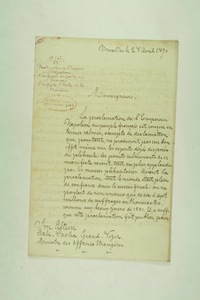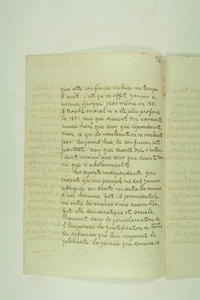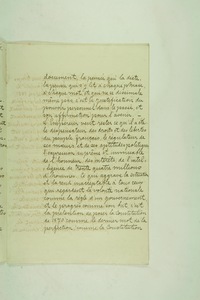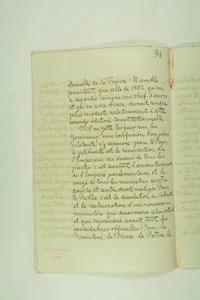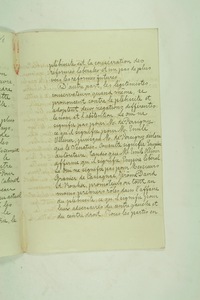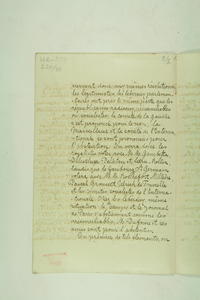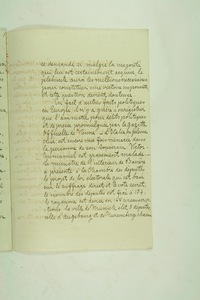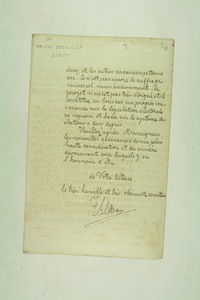Ottoman Diplomats
Letters from the Imperial Legation in Brussels (1849–1914)
Synopsis
Proclamation de l'Empereur Napoléon et confusion des partis en France. L'Autriche, l'Italie et la Bavière
The proclamation of the French Emperor Napoleon III – however calm and without bombast – did not cause favourable effects, according to Glavany. He explains why and compares the situation to the one in 1851 (and thus the coup of Napoleon III). He states that the moral unrest and confusion were now bigger than in 1851. What seems to worry him most, is that the Constitution of 1870 seemed to be the last word of perfection, instead of being the starting point of progress. The French press testified to the confusion. The different newspapers and the MPs of different sides interpreted the plebiscite in different ways: did it mean an authoritarian or a liberal Empire? Glavany tries to explain the confusion, the interpretations and the votes. The majority was in favour of the plebiscite, but it was not a victory. About the rest of Europe, Glavany briefly mentions the amnesty granted by the Austrian government and the illness of the Italian King Victor Emmanuel II. In Austria, the Bavarian Minister of the Interior presented the bill on direct suffrage based on anonymous votes. Even though it was not universal suffrage yet, Glavany considers it to be an immense progress, compared to the existing electoral system.
Facsimiles
How to cite
If you use this website for your own research, we kindly ask you to mention the following reference in your publications:
Consulted online at Ottoman Diplomats: Letters From the Imperial Legation in Brussels (1849–1914) (2014 Edition), Centre for Political History (PoHis), University of Antwerp, <http://dighum.uantwerpen.be/ottomandiplomats/>.
